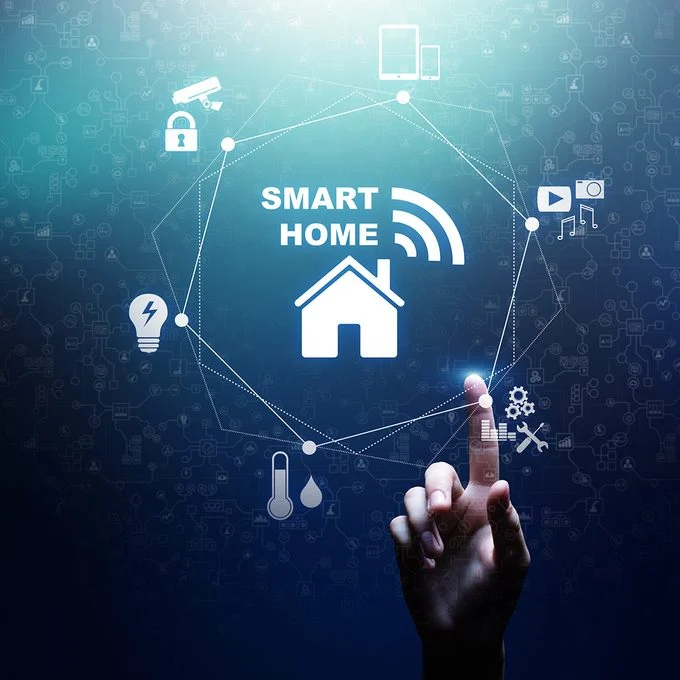The Evolution of Smart Homes Integrating Technology with Real Estate for Enhanced Living Experiences
Read latest blogs and articles from Housystan

The Information mentioned here was last updated on:
29/1/2026The Evolution of Smart Homes: Integrating Technology with Real Estate for Enhanced Living Experiences
In the swiftly evolving world of real estate, the integration of technology is transforming homes into smart living spaces. This seamless blend of tech and real estate not only enhances living experiences but also adds value to properties. Here, we explore how smart homes have evolved, highlighting key technologies shaping the industry and what the future might hold.
What Are Smart Homes?
- Verified Tenants/Buyers
- Unlimited Property Listing
- Zero subscription/charges fee
Smart homes are residential properties equipped with devices that automate and control a range of household functions. These functions include lighting, heating, security, and even entertainment, all managed through connected devices and systems. The goal of smart home technology is to improve convenience, safety, and energy efficiency, turning ordinary homes into personalized living spaces.
The Rise of Smart Home Technology
- Early Innovations: The concept of smart homes began with the introduction of simple automation systems like programmable thermostats and basic security systems. These early inventions laid the groundwork for the high-tech models we see today.
- Growth in Popularity: According to market research, the demand for smart home systems has seen exponential growth over the last decade. This surge was influenced by the widespread adoption of smartphones, which allowed users to control smart devices remotely, creating a more interconnected home environment.
- Key Drivers: Critical factors driving the popularity of smart homes include increased energy costs, technological advances, and a greater emphasis on green living. People are increasingly seeking ways to cut utility costs and reduce their environmental footprint.
Core Features of Modern Smart Homes
1. Smart Lighting Systems
Smart lighting systems are revolutionizing how we illuminate our homes. These systems allow homeowners to control lighting via smartphone apps, set schedules, and even adjust brightness and color to suit different moods.
- Energy Efficiency: Smart bulbs consume less energy and have a longer lifespan compared to traditional light bulbs.
- Convenience: Imagine adjusting the lighting throughout your home without leaving your couch. It's this level of convenience that attracts many homeowners to smart lighting.
2. Temperature Control and Energy Management
The advent of smart thermostats has transformed home climate control. These devices learn household patterns and adjust settings automatically to provide optimal comfort while saving energy.
- Cost Savings: By optimizing when and how energy is used, smart thermostats can significantly lower heating and cooling costs.
- Eco-Friendly: Many smart thermostats come equipped with features that help homeowners monitor their carbon footprint.
3. Security and Monitoring Systems
Smart security systems offer peace of mind through real-time monitoring and alerts. These systems often include smart locks, cameras, and motion detectors.
- Remote Access: Homeowners can lock doors, monitor cameras, and receive security alerts from anywhere in the world.
- Safety Features: Smart smoke detectors and water leak sensors add an extra layer of security, protecting both the occupants and the property.
4. Entertainment and Communication
Home entertainment and communication have also been revamped by smart technology, transforming how families consume media and interact with their environment.
- Smart Speakers and Assistants: Devices like Amazon Echo and Google Home act as central hubs, controlling other smart devices and providing information on demand.
- Integrated Systems: Smart TVs and home theater systems are increasingly interconnected, allowing for seamless streaming and control from a single device.
The Impact on Real Estate
The incorporation of smart technology significantly impacts property value and buyer appeal. Homes equipped with smart features often command higher market prices due to their convenience and energy benefits.
- Appeal to Buyers: Modern buyers often look for homes that offer tech-enabled conveniences, making smart homes more attractive in the real estate market.
- Investment Returns: Smart home technology can provide a strong return on investment by differentiating properties in competitive markets.
To get more insights into investment opportunities in smart real estate, check resources like [YourCompany's Real Estate Guide]().
Challenges and Considerations
While smart homes offer many benefits, they also present certain challenges:
- Privacy Concerns: As homes become more connected, ensuring data security and privacy is paramount. Homeowners must take steps to safeguard their network against potential breaches.
- Compatibility Issues: With a multitude of devices and manufacturers, ensuring that all systems seamlessly communicate can be tricky. Standardization and interoperability remain key issues.
- Initial Costs: The upfront investment in smart technology can be substantial. However, the long-term savings in energy and enhanced home value often justify the expense.
The Future of Smart Homes
As technology advances, so will the capabilities and features of smart homes. Future developments might include:
- A.I. Integration: Artificial intelligence will play a more significant role, making homes increasingly intuitive and responsive to occupants' needs.
- Smart Cities: Beyond individual homes, entire communities could integrate smart technology, creating cohesive smart cities with interconnected infrastructures.
- Sustainability: Expect further advancements in eco-friendly technology, enabling homes to operate more sustainably while minimizing their environmental impact.
The evolution of smart homes represents a transformative shift in how we live, blending traditional living spaces with cutting-edge technology to enhance everyday life. Whether it's optimizing energy use, boosting security, or providing entertainment, smart homes offer a glimpse into the future of living. This ongoing revolution in home technology underscores the importance of staying informed and adaptable to these exciting changes. Keep exploring innovative possibilities in the world of real estate technology and consider how your home can benefit from becoming smarter, more efficient, and more connected.